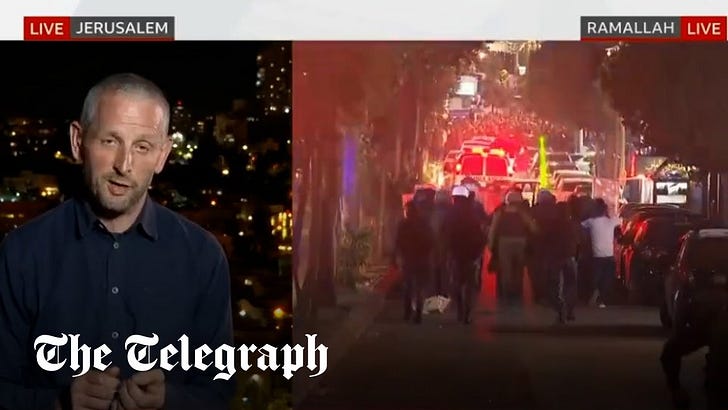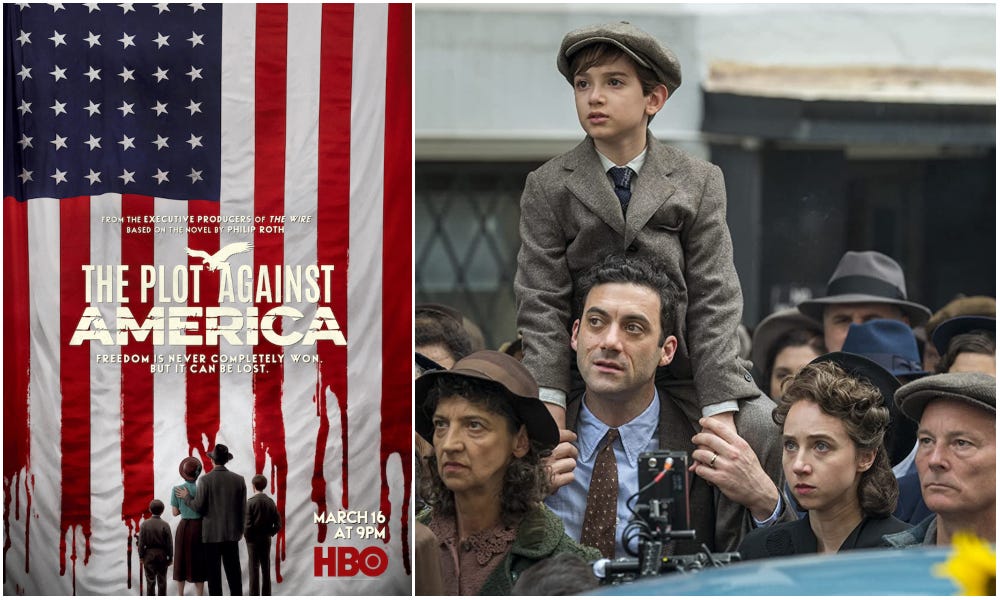The BBC’s endorsement of Hamas misinformation marks the triumph of fake news
Propaganda is the only victor of the Gaza war
The weekend political column is for everyone to read. But please sign up as a free subscriber to receive more posts. Better still, help me carry on writing by becoming a paying subscriber. You will then receive access to all pieces, archives, and podcasts for a mere £1.15 a week. There’s a free trial offer too. Best wishes, Nick
Of all the mistakes the BBC has made, its instinctive decision to go along with what looks like Islamist propaganda is the worst of my lifetime. It foretells a world where caring about the truth becomes a minority concern. Maybe we are already in that world. It can certainly feel that way.
For the record, and for what it is worth, I have no time for the journalists working for the right-wing press who make a lazy living obeying their proprietors’ orders to attack the BBC for real and, more often, imaginary crimes.
However, its handling of the fake news that Israel had engaged in a war crime and killed hundreds of civilians at the al-Ahli Arab hospital in Gaza is of a wholly different order from culture-war spats. The BBC’s behaviour shows how even those who say they defend serious journalism no longer believe in it in their hearts.
Hamas understood the first principle of propaganda: tell the suckers what they want to hear. People are most likely to believe lies when they want them to be true.
In the case of Gaza, some, by no means all I should say, but some liberal journalists were so uncomfortable with the sympathy for Israel after Hamas engaged in the largest slaughter of Jewish civilians since the holocaust, they yearned to see the score evened.
Hamas immediately blamed Israel as soon as an explosion claimed the lives of hundreds at the al-Ahli hospital, even though it was impossible for any honest observer to know what had happened in so short a time. The US liberal media, which is nowhere near as committed to serious journalism as foreigners imagine, ran with the story. Maybe it was not prejudice, just the urge to be first with the news. For whatever reason AP, The Washington Post, and The New York Times repeated the Hamas account. They did not have the honesty to say upfront that it was a Hamas account, but attributed the claim in their headlines to “Palestinians” or “the Palestinian health ministry”. The news went round the world, leading to attacks on synagogues and marches on embassies.
I was watching the BBC and heard its reporter announce that “it was hard to see what else this could be, really, given the size of the explosion, other than an Israeli airstrike or several airstrikes.”
Like a fool, I believed him. I grew-up in a 20th century Britain where it was inconceivable that a BBC reporter would deliver a judgement, straight to camera, that might incite anti-Jewish racism back home, without first checking whether it was true. The old culture of the BBC, with its assumption that we might live in a world where sober, fact-checked news, was delivered by journalists who overcame their prejudices, is dead. The triumph of fake news is now so complete it is corrupting the institutions that are meant to oppose it.
As if to prove my point, the only news organisation to offer a full reckoning was the AP news agency. It analysed more than a dozen videos, as well as satellite imagery and photos, and concluded that the rocket that broke up in the air above the hospital “was fired from within Palestinian territory, and that the hospital explosion was most likely caused when part of that rocket crashed to the ground”.
The BBC was more interested in explaining why the truth did not matter. If you think I am making too much of one reporter lost in the fog of war, the BBC’s international editor said that what was important was what people believed, not what actually happened at the hospital. Most people in the Arab world believe in Israeli guilt. “The bitter dispute over who was responsible for the attack will not change many minds,” he explained. “For Palestinians - not just supporters of Hamas - the piles of bloodstained body bags were all the proof they needed.”
The concern of journalism was no longer what had happened but what people thought had happened. If you take the cynical view of history, the BBC is right, of course. Although the relatives of the dead in the hospital car park may well be more concerned in finding out the identity of the killers than the BBC acknowledged, I am sure that most of the people of Gaza are concerned only with the coming Israeli ground invasion and the air strikes that are already terrifying them. If the Israelis did not kill civilians at the hospital, they will kill them elsewhere, and they indeed have been killing civilians at other sites.
If you are an Israeli, you will see Hamas, a genocidal antisemitic movement, commit crimes against humanity and yet still retain the support of much of the world. You will undoubtedly be concerned about the fake news the BBC, Washington Post and New York Times spread. (Last week the Israeli government accused the BBC of perpetuating a “modern blood libel” in its reporting of the al-Ahli Arab hospital explosion.) But you are unlikely to be as willing to hunt down the truth when Israeli forces recklessly kill Palestinian civilians.
I don’t want to romanticise the 20th century. Tabloid journalists and other journalists manufactured fake news long before the invention of the internet. The conspiracy theories of fascism and communism flourished in a world where the most advanced means of communication was radio.
For a short period inthe late 20th century, however, the possibility existed that the journalism the BBC championed would dominate. That hope seems ludicrously utopian now that every advance in technology offers an advance in propaganda.
Elon Musk wants fake news. As AFP wrote this week, historically, Twitter's greatest strength was as a tool for gathering and disseminating life-saving information and coordinating emergency relief during times of crisis.
Now Musk “has gutted content moderation, restored accounts of previously banned extremists, and allowed users simply to purchase account verification, helping them profit from viral - but often inaccurate - posts."
Meanwhile artificial intelligence has supercharged the possibilities for manufacturing fake images. The novelist Sean Thomas examined the capabilities of AI and imagined a near future where all images will be suspect, and no one will know which is real or not. “Bad actors – on any side, in any conflict – could manufacture entire atrocities, seen from multiple angles, in different lights. What shall we do then? Rely solely on eyewitnesses? On humans at the scene? Humans lie, that’s why, until now, we’ve trusted images –because ‘the camera never lies’.”
I am more struck by how, as the new world of disinformation triumphs, many welcome it, and look forward to exploiting the chances for propaganda it brings.
The BBC is probably right. In the greater story of the Middle Eastern conflict, it barely matters who bombed a hospital in Gaza. But the BBC used to be a part of a culture that valued truth for its own sake. It hoped that accountability and honesty in public life would flow from an insistence on factual reporting delivered without bias. And now it no longer does, and its abandonment of its mission remains an enormous loss and a warning for the future.
Update
Reuters reports that speaking in Jerusalem about the explosion today (Sunday, 22 October) the Archbishop of Canterbury Justin Welby told reporters: "I have no idea about how many civilians there were. I've heard so many numbers."
"What I have said to people, publicly, is: 'Don't assume it's Israel. You have no proof that it's Israel. Many people have made a clear case it's not. At the very best, do not start propagating another blood libel,'" he said.
"Blood libel" is a term that has historically been used for false accusations of atrocities committed by Jews that sometimes stoked violent antisemitism and were used to set off pogroms.
Recent pieces for paying subscribers
Arthur Miller, JK Rowling and the death of witch hunts
·
24 Aug
American democracy eats itself
·
5 Oct
Keep reading with a 7-day free trial
Subscribe to Writing from London to keep reading this post and get 7 days of free access to the full post archives.





